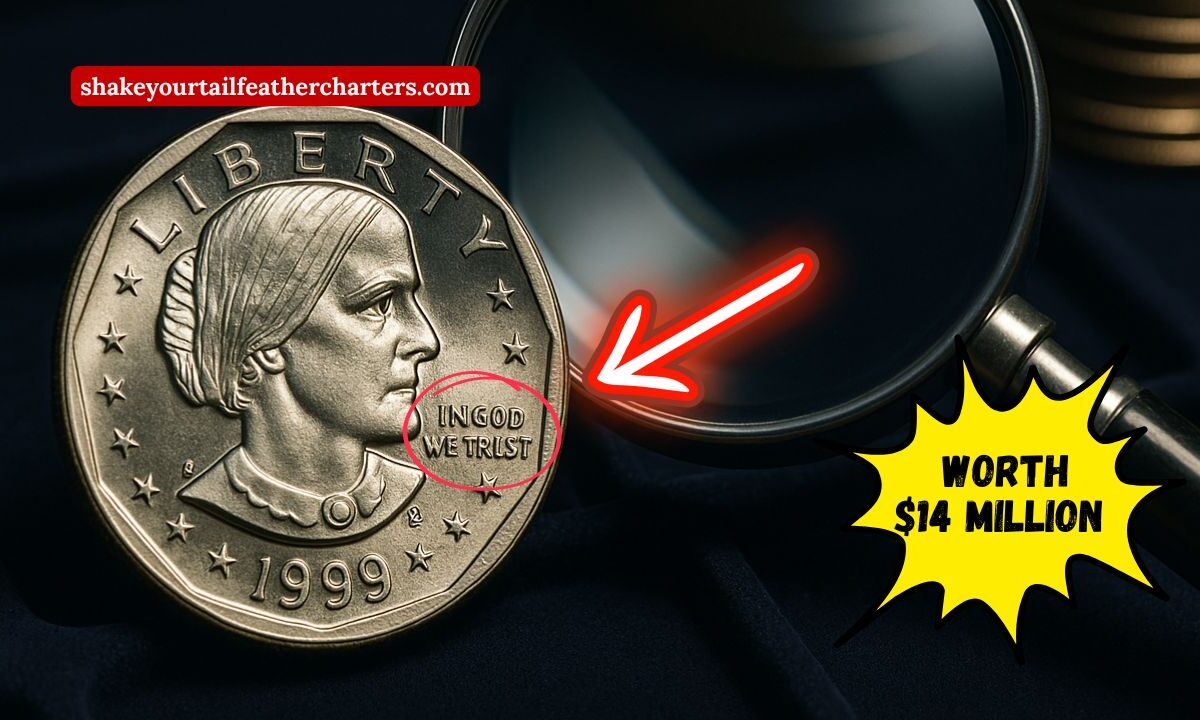The Susan B. Anthony dollar, introduced in 1979, was meant to modernize U.S. currency and honor one of the nation’s most influential women’s rights activists.
While millions of these coins were minted, making most worth little more than face value, a rare few have turned into collector’s treasures. Recently, a 1999 Susan B. Anthony dollar stunned the numismatic world by selling for an incredible $14 million.
This jaw-dropping sale has left coin enthusiasts and everyday Americans alike asking the same question: what makes a simple $1 coin worth millions?
Why the $14 Million Sale Shocked Everyone
Most 1999 Susan B. Anthony dollars are common, with face values between $1–$3 in worn condition. Even proof strikes—coins made specifically for collectors—usually sell for $20–$100 depending on condition.
However, the particular coin sold for $14 million due to its extraordinary combination of:
- A proof-like finish, suggesting a unique aesthetic quality
- A rare minting error, making it fundamentally unique and highly collectible
This perfect pairing of error and exceptional condition catapulted it from everyday change to priceless collectible in the numismatic world.
Understanding Typical Values vs. the Exceptional Outlier
While rare, this $14 million sale underscores how expert grading and unique coin characteristics can transform a common coin into a historic treasure. Here’s a snapshot:
- Regular 1999-P circulated coins: $1 to $3
- Uncirculated/mint state 1999-P: up to $10–$20
- Proof coins (1999-P “proof strike”): often valued between $20–$100
- Rare mint errors or exceptionally rare finds: $500–$5,000+
- The exceptional thrift-store find: a jaw-dropping $14 million
What Makes This 1999 Dollar So Valuable?
| Feature | Details |
|---|---|
| Face Value | $1 |
| Mintage (1999-P, regular) | ~29 million coins |
| Common Value (Circulated) | $1–$3 |
| Proof Coins Value | $20–$100+ depending on condition |
| Error or Unique Coin | $14 million (record sale) |
| Key Factors | Proof-like finish + mint error; one-of-a-kind |
What These Coins Mean for Collectors
This extraordinary sale serves as a reminder that:
- Every coin has potential: Even those found in circulation or in change jars could be rare discoveries.
- Condition and errors matter: Minting anomalies, proof finishes, and near-perfect preservation can add extraordinary value.
- Expert authentication is essential: Grading by reputable services (like PCGS or NGC) is a must to establish authenticity and unlock collector trust and value.
The shocking $14 million sale of a 1999 Susan B. Anthony dollar demonstrates how even everyday coins can conceal immense value. Whether due to rare minting errors or exceptional finishes, certain coins break through rarity barriers and become historic treasures.
So next time you come across a Susan B. Anthony dollar, take a closer look—it might be more than just spare change.
FAQs
No. Most are ordinary — worth just their $1 face value or a few dollars at most unless they have rare errors or are proof coins in perfect condition.
Its one-of-a-kind mint error combined with a proof-like finish and likely perfect preservation marks it as a once-in-a-lifetime collectible—driving the extraordinary auction price.
Inspect the date, mint mark, and overall condition. If it looks unusual or collectible, have it authenticated and graded professionally before estimating its true worth.

